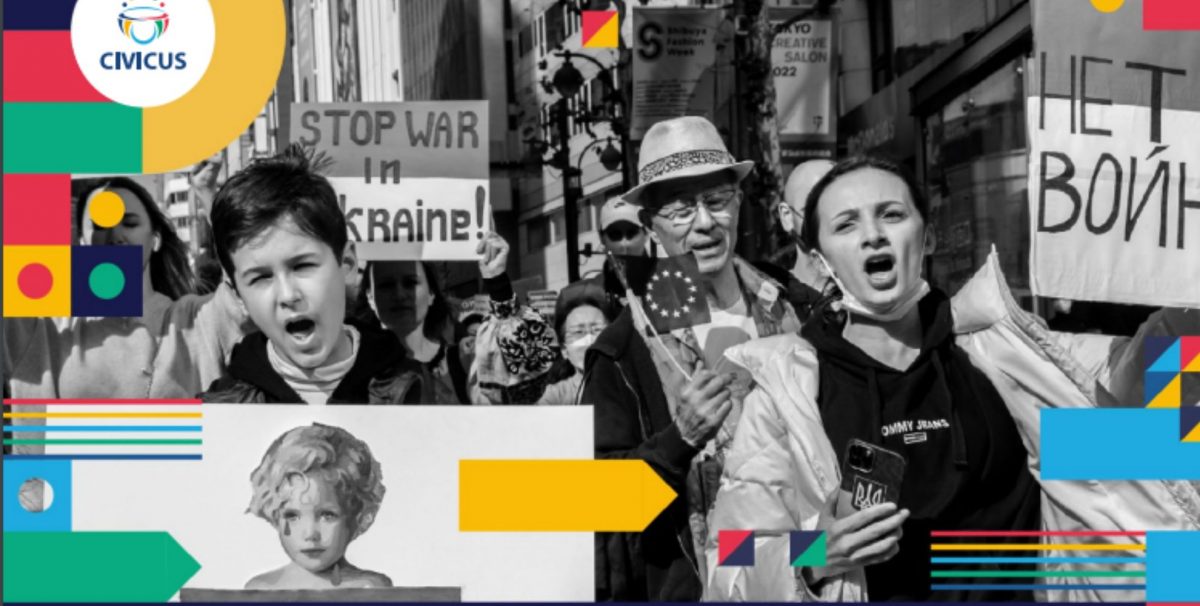The eleventh annual state of Civil Society report published by the global civil society alliance CIVICUS sheds light on a time of immense agitation and controversy. Russia’s illegal war against Ukraine, which has devastated the lives of millions of people, generates echoes of disruption around the world, as the consequent rise in food and fuel prices adds further suffering to communities already affected by the impacts of pandemic and extreme weather conditions caused by climate change.
However, this report finds hope in the mobilizations for change around the world: mass protests, grassroots justice campaigns and movements, and the many grassroots initiatives advocating for rights and helping those most in need. Civil society is striving by all available means to make a difference.
Five key trends of global importance were identified:
- Rising fuel and food costs and government mismanagement.
Governments fail to protect the population from the impacts of price increases exacerbated by the Russian invasion of Ukraine. Social anger at a dysfunctional economic system, poverty and economic inequality and corruption is on the rise. Mass protests are taking place around the world. In Sri Lanka, demonstrations have forced the resignation of the prime minister. In Iran, people are demanding change as food prices soar. In Kazakhstan, more than 200 people died with impunity after protests over rising fuel prices.
- Democracy is under attack, but we continue to see positive changes.
Coups d’état are jeopardizing hard-won gains. The military seized power in Burkina Faso and Sudan. In El Salvador and Tunisia, democratic checks on power are being dispensed with. In Nicaragua and Turkmenistan there was election fraud. Autocratic nationalists won elections in Hungary and the Philippines. But at the same time, mobilizations emerged in the Czech Republic and Slovenia, where divisive political leaders were ousted in favor of new and broad alternatives. Progressive leaders committed to social justice came to power in Chile and Honduras. In Costa Rica and Peru, dissatisfaction is leading to the rejection of incumbent rulers and acceptance of outsider candidates promising change.
- Progress has been made in the fight against Social Inequality in spite of these attacks.
Despite pressure from opposing groups, progress was made in promoting women’s and LGBTQI+ rights. While the United States, where neoconservatives are emboldened, is increasingly isolated on sexual and reproductive rights, countries such as Colombia and Mexico reduced abortion restrictions thanks to civil society advocacy. Opportunistic politicians continue to seek advantage in the LGBTQI+ community, but everywhere the normalization of LGBTQI+ rights is spreading. Recently, the Swiss people voted in favor of an equal marriage law. Even in hostile contexts such as Jamaica, progress was made thanks to civil society participation in regional human rights systems. But in terms of migrants’ rights, only Ukrainian refugees in Europe are received with compassion and the dominant global sentiment is one of hostility. However, a new generation is forging movements to advance racial justice and demand equity for excluded people.
- Civil society keeps up the pressure for climate action.
A young and diverse generation continues to stir up the waters on climate change. As extreme weather events increase, the climate crisis continues to disproportionately affect the most excluded populations, who have done the least to cause it. Governments and corporations are unable to act, and civil society movements are demanding urgent emission reduction measures to address the problem. In addition, climate litigation is growing, leading to important legal developments, such as the ruling in the Netherlands that forced Shell to commit to reducing its emissions. Shareholder activism against fossil fuel companies is intensifying, and pension funds are coming under increasing pressure to divest from fossil fuels.
- The current crises showed the shortcomings of the international governance system.
Russia’s war against Ukraine along with recent conflicts in the Sahel, Syria and Yemen evidenced the failure of global institutions to protect people and prevent conflict. The UN Security Council is hampered by the veto power of Russia, one of its five permanent members, although the General Assembly condemned the invasion of Ukraine. Russia was suspended from the UN Human Rights Council, but this body is still dominated by states that violate these rights. The effective participation of civil society is necessary for the UN to react to crises. Today’s world needs a UN prepared to work with a civil society that continues to seek and secure vital progress for humanity.
To read the full report visit CIVICUS page.

